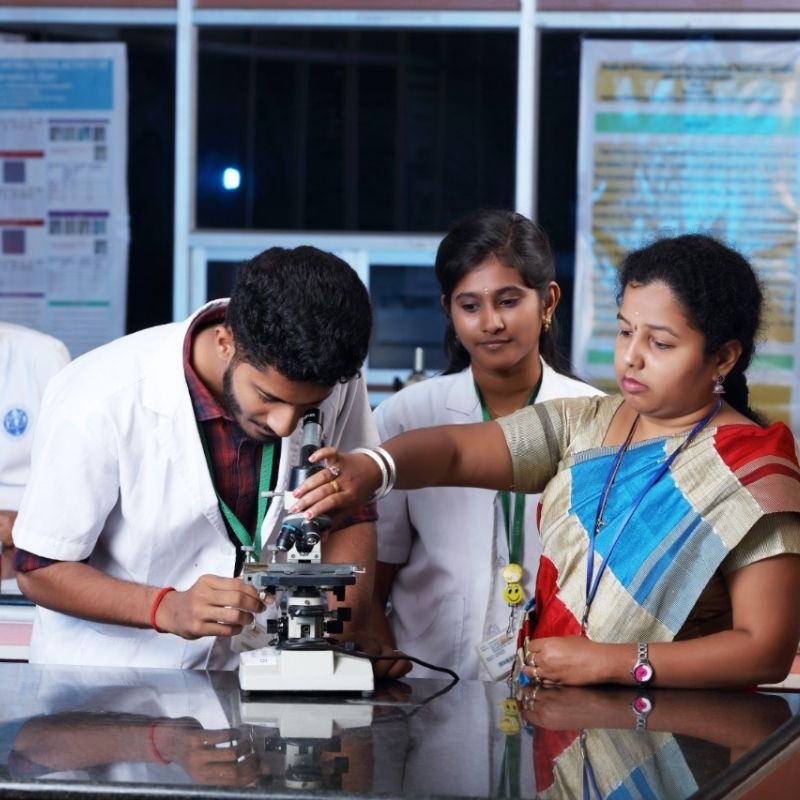B.Tech Biotechnology
B.Tech in Biotechnology combines biological sciences with technology to develop innovative solutions in healthcare, agriculture, and environmental sustainability.

The B.Tech in Biotechnology program is designed to provide students with a comprehensive understanding of the principles of biology, chemistry, and engineering as they apply to biotechnology. This four-year undergraduate program focuses on various applications of biotechnology, including genetic engineering, bioprocessing, bioinformatics, and pharmaceuticals. Through a mix of theoretical knowledge and hands-on practical experience, students will learn to address real-world challenges in areas such as healthcare, agriculture, and environmental conservation.
Key Highlights of the Program:
The program is structured over eight semesters, covering core subjects, electives, and practical training.
Core Subjects:
Elective Subjects:
Laboratory and Practical Sessions:
To enroll in the B.Tech in Biotechnology program, candidates must meet the following criteria: